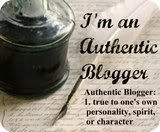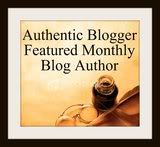 One of the panels I went to at V-Con this year was called "First Page Idol," where audience members were supposed to bring the first page of their story/novel and the panel would critique it, emphasizing the importance of that first page.
One of the panels I went to at V-Con this year was called "First Page Idol," where audience members were supposed to bring the first page of their story/novel and the panel would critique it, emphasizing the importance of that first page. The panelists for this one were Marcie Tentchoff, Phoebe Kitanidis, Brian Hades, Ian Alexander Martin, and Stephanie Johanson, and it was a really interesting panel (though it turned into a "first line" panel because of various factors that I mention in my V-Con report). We eventually did a bit of a contest where we came up with a first line, presented it, and the panel said whether or not they would continue reading a story that began that way.
As an unpublished writer, I have wrestled with this for quite a while. As a reader, I have often wondered whether this was a universal truth or not.
Why do I ask that?
Because in too many books I have been reading lately, authors whose books I truly enjoy seem to be failing at this aspect of writing.
Sometimes I'm reading the beginning of a book and I stop and think to myself whether I would continue reading this if I wasn't already familiar with the author's work. I know, or at least have faith, that the book is going to be good (though I know even the best authors have clunkers) so I forgive the fact that the beginning really isn't that interesting. Media tie-ins also get somewhat of a pass, because their audience is already built in, at least a little bit. That doesn't mean that all Star Trek books (to name one franchise) are good, or even well-written, but it does mean that we're more likely to carry on before giving up on the book.
The book that really sparked my thinking about this, however, is the book I just started today: Betrayal of Trust by J.A. Jance. It's the latest J.P. Beaumont mystery.
Here's the first paragraph:
"I was sitting on the window seat of our penthouse unit in Belltown Terrace when Mel came back from her run. Dripping with sweat, she nodded briefly on her way to the shower and left me in peace with my coffee cup and the online version of the New York Times crossword. Since it was Monday, I finished it within minutes and turned my attention to the spectacular Olympic Mountains view to the west."Jance then goes on for six whole pages describing Beaumont and Mel's personal living arrangement, their coffee-making, the fact that they have separate bathrooms. She then gets them to the Special Homicide Investigation Team (yes, the running joke is that the group is named S.H.I.T.) and continues for another page or two talking about their working arrangement, before they're finally called into the chief's office and sent down to Olympia (the series takes place in Seattle) to investigate something. We get another couple of pages about Beaumont's drive down there, though at least he also spends some time wondering about the secrecy involved in this particular case.
(Keep in mind that, of course, the quality is a subjective thing, so you may not feel that this is a failure)
If I were a new reader to this series, and if this wasn't a book that I had chosen off of the "To be reviewed" list for Curled Up With a Good Book, I would probably have put this book down. As a regular reader of the series (or at least the last couple of books), it was nice to get a bit of a refresher on who Mel was and that sort of thing. But a new reader? I would have been bored silly. In fact, I was bored silly; I just knew that it would be getting better, because I'm a fan of Jance's. Sure, the book may turn out to be terrible, but I'm willing to give Jance that benefit of the doubt, that it most likely will be at least good, if not great.
There are always new readers to a series, however, or to a particular author if that author doesn't write series. The author should always be trying to attract new readers, I would think.
My question is, then, are "established" authors given more of a pass on this "make the first sentence/paragraph/page grab the reader" requirement of writing? As a reader, are you more willing to give somebody that benefit of the doubt if you are either a fan of their work, or at least you know that the author has numerous other books under his/her belt? What about first-time authors? If you find a first book by an author, are you more likely to give up on it sooner if the beginning of the book/story hasn't grabbed you?
I'd also love to hear from any authors who are reading this post. What are your thoughts on this subject?
As a Jance fan, I really want to give Betrayal of Trust the benefit of the doubt and hope that this isn't a bad sign. I've read quite a few books from established authors and authors I'm a fan of, and many of those books have recovered from a poor beginning.
I'm hoping Jance is the same way. I will, of course, give the book a totally fair review.
This isn't a good way to start, though.
















This is a good question and topic. I think that yes, established authors do get a bit of slack with new manuscripts. I am like everyone else in that I have several favorite authors and I know their body of work well enough that I will buy their newest published book without even paging through it first. It doesn't happen often, but occasionally one of those authors will produce something that's just a waste...waste of my money, waste of my time to read it and a waste of a lot of dead trees to print it! Can we predict this poor showing from reading the first sentence, paragraph or page of the novel? Not always. I guess it's a case by case thing.
ReplyDeleteI will say that there's nothing so frustrating to an aspiring author who is as yet unpublished than to spend hard earned money on a book and then be disgusted by the third chapter, knowing you've purchased a very bad effort. You have the inevitable thought of, "I can do so much better than this, and this person keeps getting published!" So, yes, sometimes I think they do rest on their laurels, and the publisher allows it because they know readers are loyal and will do what I just described - purchase out of that loyalty.
As a blogger, I admit that I sometimes take one or two paragraphs to get to my point. I do not, however, write my fiction manuscripts in that same manner. Blogging has a different kind of formula to it, and that differs with each blogger.
So, I guess I didn't really answer your main questions. I just threw my thoughts out on the various flavors of this concept. :)
- Dawnie
Thank you for your thoughts, Dawnie! They're always valuable. :)
ReplyDeleteThe "I can do so much better than this" is what kind of got me into book reviewing in the first place. I was so pissed off at a book I was reading and I wanted to rant about it. So I posted a review on Amazon, discovered that I liked writing about books, and the rest is history. That was over 10 years ago.
Yep, I've felt similar frustration. When a book is so bad you can't force yourself to finish reading it, even though you paid good money for it, that's just frustrating. You wonder how on earth the author got picked up by an agent, and then a publisher and went on to gain popularity. Just goes to show there's an audience for everything.
ReplyDeleteThat is true. Maybe I'll experience that frustration so much that I'll actually get writing stories again.
ReplyDeleteI've fallen away from that somewhat, and keep thinking I should get back to it.
I've gotten lazy too. Blogging is my main writing focus at the moment, and even that is going to be challenging to keep up with when I start this new job next week. It will be a bigger balancing act.
ReplyDeleteYOU should get back to it! You know I'm one of your biggest fans. :)
You've never read any of my fiction, so how do you know you're a fan? :P
ReplyDeleteAnd I didn't realize you were starting next week! Congrats again! I'm very happy that it worked out for you, even if you are going to be busier than normal.